'From what evidence has come up, General Bajwa somehow managed to tell the Americans that I was anti-American.'
'And so, it [the plan to oust me] wasn't imported from there. It was exported from here to there.'
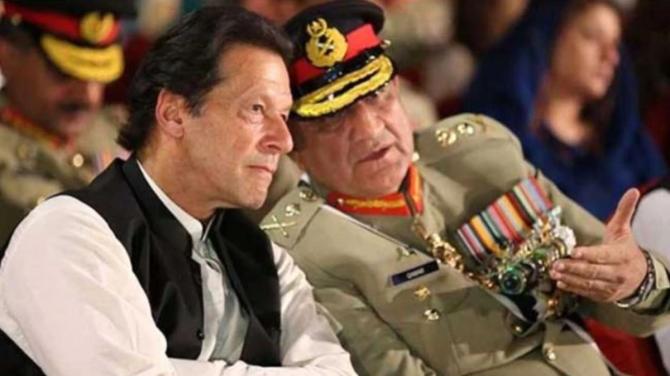
Since his ouster from power in a parliamentary vote of no-confidence last April, Pakistan's former prime minister Imran Khan has had a public falling out with the military, despite previously enjoying a close relationship with the country's most powerful institution.
He accuses then army chief General Qamar Javed Bajwa of conspiring with his political opponents to remove him from office with help from the United States -- allegations that Washington, the Pakistani military, and the government have repeatedly denied.
Khan calls the two political dynasties of Pakistan -- the Sharifs and Bhuttos that are leading the 13-party alliance currently ruling -- "crooked" and accuses them of embezzling millions of dollars, but his administration failed to successfully prosecute charges of corruption against them.
In a wide-ranging interview with Voice of America Islamabad Correspondent Sarah Zaman, Khan, who was prime minister from 2018 to 2022, said it was the security forces' negligence that allowed the Pakistani Taliban, or TTP, to resume its activities.
He expressed hope that the military would stop interfering in politics and would build good relations with Washington -- despite accusing it of conspiring in his ouster.
This transcript has been edited for clarity and brevity.
Published with the kind permission of Voice of America.
Your relationship with the Pakistani military has evolved within a very short period. When you were in power, you and the military appeared to be on the same page.
You not only accused the top brass of conspiring in your ouster, but also that the military didn't give you enough room to govern and was calling the shots.
What kind of a relationship do you think the military should have with the civilian government and with any political party?
Well, first let me just define what you mean by the military. Military [in Pakistan] means one man, the army chief.
So, the whole policy of military vis-a-vis their dealing with the civilian government depends on the personality of one man.
The positive side during our relationship with General [Qamar Javed] Bajwa, rather than the military, we were on the same page, which meant that we had the organized strength of Pakistan army to help us ... and we worked together, and you know, Pakistan was considered one of the success stories of the COVID-19.
Now, the problem was that General Bajwa favored some of the biggest crooks in this country, and he did not think corruption was a big problem, and he wanted us to work with them.
What that meant [was] giving them immunity from their corruption cases.
He had a very close relationship with Shehbaz Sharif, the current prime minister. And, for some reason, he conspired, and this regime change took place.
He rejects those allegations. But, if you come back to power, what makes you think things will be different?
That the army that has consistently played a huge role in Pakistan would back off?
The leading principle of the balance [of power] is that the elected government that has the responsibility, which people have mandated through their vote, must also have the authority.
You cannot separate responsibility and authority.
So, if the authority lies with the army chief, [but] responsibility lies with the prime minister, no management system works.
But do you believe it could be different next time? And if you don't believe so, why do you want to run for reelection?
It can be because Pakistan is evolving all the time, and I'm sure amongst the new military leadership there is a realization that this experiment of regime change has gone wrong.
Pakistan's economy has gone into a tailspin, we are facing the worst crisis in our history, the economic crisis, but not just that, the governance crisis, and there's no way to get out of this.
The only way is that we have a paradigm shift with [how] Pakistan has been run.
You've been agitating for elections for almost 10 months now, but you've also said that you don't believe the next elections are going to be free and fair.
Will you accept the results if your party does not win a majority?
They have completely destroyed the credibility as an impartial election commission. So, there won't be free and fair elections, but there will be elections.
Will you accept the results if your party does not win a majority whenever the general elections happen?
That's premature to say. How can I say right now the extent of rigging they'll do.
There was a local government election in [the southern province] Sindh, all the political parties rejected the local government election, all of them... there will be rigging but the extent? I can't say right now.
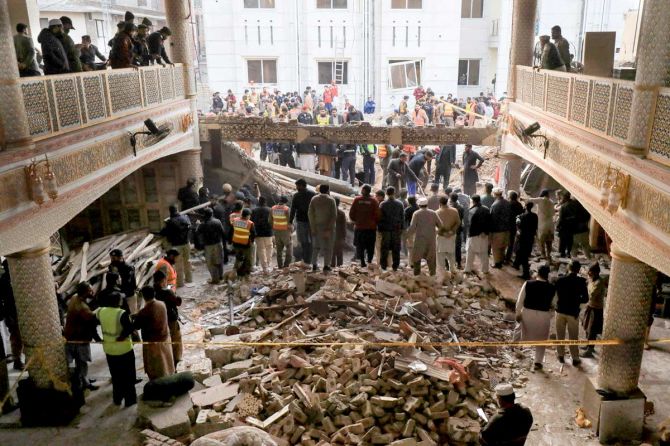
Let's talk foreign policy. Do you believe the Afghan Taliban government is friendly to Pakistan?
Well firstly, whatever government is in Afghanistan, Pakistan must have a good relationship with them.
I tried my best with the Ghani government ... because our interest is that having a good relationship with the government in Kabul means that we have a 2,500-kilometer border with them.
Which means that if there are problems of terrorism, then they will help us.
But so far, even the Pakistani government says it's not getting the help from the Afghan Taliban to fight terrorism the way it would have liked.
You know, what is disturbing is that our foreign minister, he's spent almost all his time out of Pakistan, but he's not paid one visit to Afghanistan.
I'm not saying it's going to be easy, but do we want a repeat of what happened to Pakistan from 2005 onwards to 2015, where Pakistan was going under, suffering from terrorism all along the Afghan border?
I think we are not in a position to have another war on terror.
And the only way is to somehow get Kabul to work with us so that we can jointly deal with this issue.

One of the reasons that terrorism has spiked in Pakistan is because, according to the National Counterterrorism Authority, the time that was taken for negotiations with TTP was used by that group to reorganize.
Those talks started when you were in power. Do you stand by your decision to greenlight those talks?
Well firstly, what were the choices [the] Pakistani government faced once the Taliban took over and they decided the TTP, and we're talking about 30, [30,000] to 40,000 people, you know, the families included, once they decided to send them back to Pakistan?
Should we have just lined them up and shot them, or should we have tried to work with them to resettle them?
We had a meeting, and the idea was that the resettlement had to be done with the concurrence of the politicians of all along the border, the FATA [tribal] region, and along with the security forces, plus, the TTP.
But that never happened because our government left and once our government was removed, the new government took its eye off the ball.
Meanwhile, this threat grew and it's possible that they regrouped, but then where were the Pakistani security forces? Where were intelligence agencies? Could they not see them [re]grouping? So, the problem is, how could we be held responsible for their negligence?
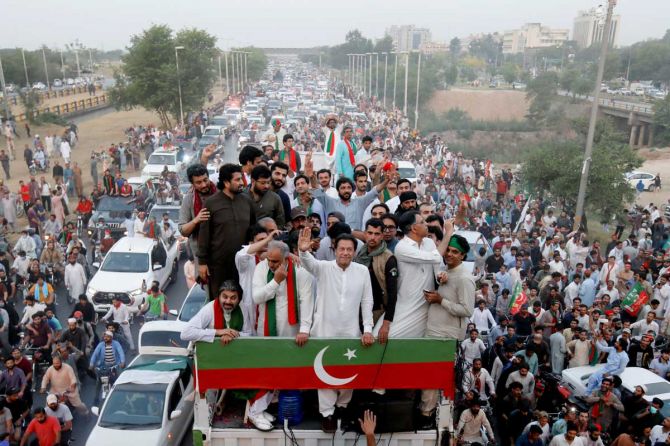
Throughout last year, at rallies, your narrative was the US conspired with your political opponents to remove you from office [a claim the Biden administration has denied].
If you come back to power, what kind of challenges do you see in repairing your relationship with Washington?
Well, firstly, international relationships should not be based on personal egos.
They should be based on the interest of the people of your country.
The people of Pakistan, their interest is that we have [a] good relationship with the US. US being a superpower and our biggest trading partner.
Pakistan exports more to the US than any other country.
Whatever happened, now as things unfold, it wasn't the US who told Pakistan [to oust me].
It was unfortunately, from what evidence has come up, General Bajwa who somehow managed to tell the Americans that I was anti-American.
And so, it [the plan to oust me] wasn't imported from there. It was exported from here to there.
Do you still believe the US played a role in removing you from office?
Well, the cipher is a reality. It was an official meeting [that] initiated [conversation on] both sides, between Donald Lu, the Undersecretary of State for South Asia, and the Pakistan ambassador, and this was brought to the National Security Council and cabinet.
Having said that, it's in the past, we have to move on. It's in the interest of Pakistan to have good relations with the US and that's what we intend to do.
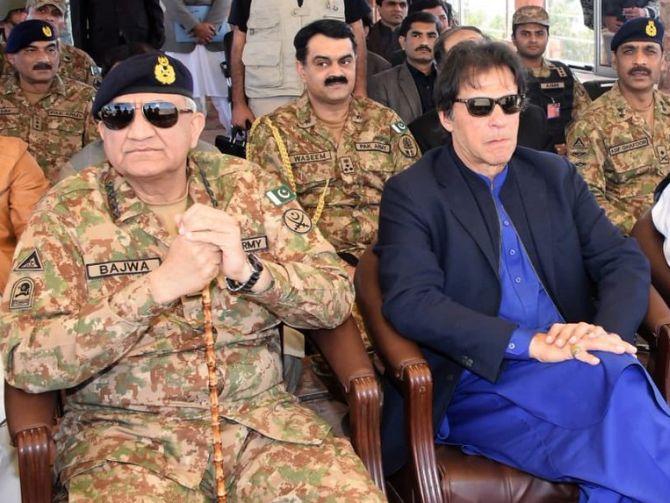
In your interview with The New Yorker, you were asked about your stance on human rights and China's treatment of its Uyghur Muslims.
In the past, first your position was, this is not happening. Later on, you said that you would rather discuss [this issue with China] in private.
But [in the interview] you said that you didn't essentially call China out for its abuse of the Uyghurs because it could cost Pakistan a lot, because Pakistan relies very heavily on China.
Does that mean that you speak for Palestinians or for Kashmiris, because there are no serious political consequences for Pakistan?
Is this how a country should manage its moral positions?
Remember, the prime minister of a country, his main responsibility is his own people.
So, you do not want to make moral statements about other countries, which would affect the lives of your population.
I'd give you an example. We were told to take [a] position on [Russia's war in] Ukraine.
We decided to stay neutral. India decided to stay neutral, biggest strategic partner of the US. Why?
Because India sensibly thought about its own people. It got oil from Russia at 40 percent discount.
So, by actually taking sides, you can actually affect the lives of your own people.
My responsibility as a prime minister was the 220 million people of my own country, and it's exactly what the Western countries do, they don't take positions when it hurts their economic interest.
Kashmir -- the United Nations Security Council has passed resolutions on Kashmir, a disputed territory.
India took over Kashmir unilaterally.
No response from the Western countries because it is a strategic partner.
So, countries like us who have large populations that are hovering around the poverty line, we at least do not have the luxury of making moral statements.








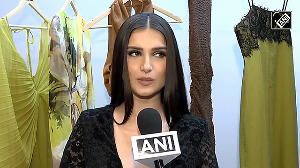
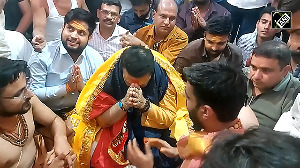

 © 2025
© 2025